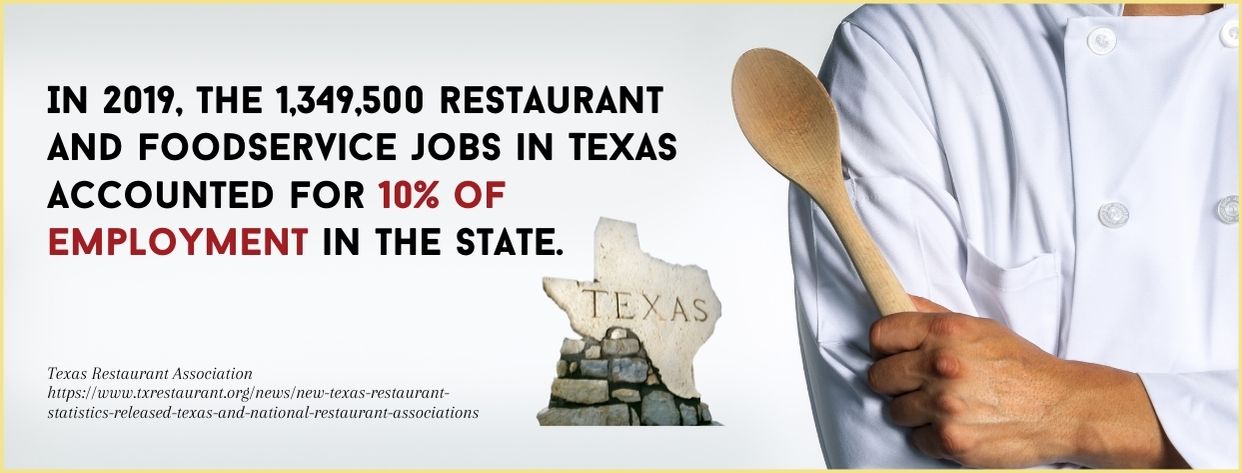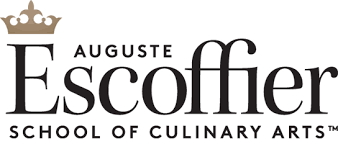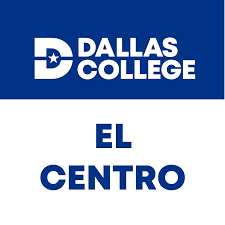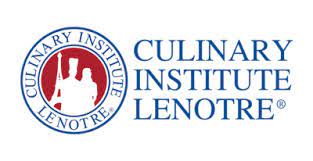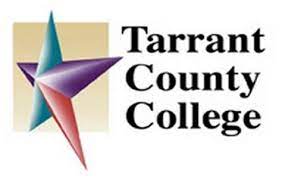Find Your Perfect School
It is not an exaggeration when they say that cooking is an art. There is so much involved in this seemingly simple process: the cooking, presentation, and serving of sumptuous meals satisfy the stomach and the soul.
Many dream of making delectable dishes to delight and captivate people at first bite! To make that dream of cooking and experimenting with flavors a reality, a career in the food and hospitality industry can be a great choice. Chefs and head cooks can earn an average of $56,520 every year or $27.17 per hour.
While there are many ways to get to that ultimate goal, attending a culinary school proves to be a wise decision for many. Apart from the fact that culinary art is their passion and calling, there are countless reasons why young people pick this career path.
The Benefits of Going to Culinary School
Culinary schools can be expensive, but why do many aspiring chefs take this route? Is it worth it? Here are the compelling reasons to attend a culinary arts school:
Get the Advantage That Formal Training Offers
One of the primary advantages of going to a culinary school is getting the education students need to stand out from the competition. The foundational knowledge they get to earn from a culinary program can give them an advantage in the real world.
Those seeking senior positions will find it relatively easy to do so. A degree in culinary arts will not only give them a chance to get into a kitchen, but they will also be able to take charge of the kitchen.
Appreciate Culinary as an Art Form
Understanding the history and culture behind culinary arts will inspire culinary professionals to pour their heart and soul into their food creations. Besides learning the basics of culinary art, students also explore and thoroughly understand rich histories associated with culinary cultures.
They will appreciate how colors, flavors, and aromas come together to create something extraordinary. With this appreciation, they will get to respect the profession – seeing that there is more to it than meets the eye.
Inspire a Healthy Lifestyle
Most culinary arts programs go beyond preparing and cooking food. They often tackle the importance of nutritious dishes that promote a healthier lifestyle. This gave birth to the rise of vegan options and farm-to-table restaurants.
Enjoy Job Opportunities
While hardest hit by the recent pandemic, the hospitality and travel industry is still thriving. Those pursuing a job in the culinary arts will find various opportunities for a lucrative and rewarding career.
Moreover, the dynamic nature of the field means culinary arts professionals will never run out of interesting discoveries and new learning as they come up with concepts and ideas and broaden their knowledge base and practical experiences.
Aspiring culinary arts students looking for a good school in Texas might want to consider the following options.
The Best Culinary Schools in Texas
Auguste Escoffier School of Culinary Arts
Known as the largest culinary school brand in the country, the Auguste Escoffier School of Culinary Arts prides itself on affordable education from acclaimed chef instructors. Students will get the chance to delve deep into French cooking and the enduring heritage of the school’s founder, Auguste Escoffier.
They will be empowered to reach their highest potential amidst the world of pastry arts. With its small, individualized classes coupled with modernized techniques developed by Escoffier, students will join the dynamic workforce armed with practical skills and operational awareness that will set them apart from their competitors.
Auguste Escoffier offers an Associate of Occupational Studies degree in Culinary Arts. This program is for students who have completed the diploma or certificate programs and want to pursue culinary arts further. It is also a good fit for new students who want to earn a degree. The program can be completed within six months for those who have already finished the diploma or certificate offering.
It emphasizes the skills, methods, and business foundations integral to the culinary arts field in particular and the food industry in general. Some of the courses included in the program include culinary foundations, food service management, culinary arts and patisserie, purchasing and cost control, and world cuisines.
Upon completing the courses, students participate in a hands-on industry internship to further develop their knowledge, skills, and experience in a real-world setting. Students gain a comprehensive set of skills that can give them an edge in various aspects of the industry, from operations and management to food service preparation.
The Auguste Escoffier School of Culinary Arts is located in Austin, a city known for its thriving food truck community and diverse restaurant culture. It is suitable for students who want to learn the ins and outs of culinary arts.
Dallas College in El Centro
Founded in 1966, Dallas College in El Centro campus provides a vibrant community to students and lifelong learners. They have a demonstrated history of delivering quality education through over 300 academic and technical degrees and certificates. The college takes pride in its Associate of Applied Science Degree in Culinary Arts under the Pastry and Hospitality program.
This program is taught by experienced professionals committed to equipping students with dynamic skills and building industry connections. Students will undergo training through classroom instructions and hands-on practical experiences, allowing them to gain the basic and advanced skills they need to build a professional culinary career.
Some of the classroom instructions focus on supervisory and management theory and practice. This includes learning about guest service, purchasing, kitchen layout and design, nutrition and menu planning, and food and labor cost controls.
They will also acquire hands-on preparation techniques such as basic theory and advanced practice in saucier, garde manger, and quantity production. Learning about American regional and international cuisines is also an important part of the curriculum.
Students must remember that they need to complete many courses with a “C” or better to earn the program successfully. The Associate of Applied Science Degree in Culinary Arts can take students five semesters to complete. They can expect the tuition to be around $4,740.
Dallas, where Dallas College El Centro is located, has a rich food culture that goes back decades. People in Dallas enjoy eating out, so it is not surprising to find that a lot of national restaurant chains have made their homes in the bustling city. This means students who choose to earn their culinary arts degree in Dallas can take advantage of the opportunities for a successful culinary arts career.
Austin Community College
Established in 1973, Austin Community College serves Central Texas as a gateway to higher education and technical training opportunities. The college aims to equip students with the necessary skills and knowledge to earn a degree and advance their careers.
Currently, they offer over 100 certificates and associate degree programs along with several bachelor’s degrees. All are spread out in 10 areas of study. They offer an Associate of Applied Science Degree in Culinary Arts program for those whose passion and interest lie in this field.
In this program, students will learn how to turn their love of cuisine into a career. They will gain a solid foundation and fundamental skills that will allow them to work in a commercial food and beverage environment. It sets students up for a higher-level line position or even a management training position in the culinary industry.
Some of the courses included in this program include Sanitation and Safety, Basic Food Preparation, Introduction to the Hospitality Industry, Fundamentals of Baking, Nutrition for the Food Service Professional, Meat Preparation and Cooking, Intermediate Food Preparation, and American Regional Cuisine, among others.
Completing this program will make one a junior member of the American Culinary Federation. This will give them automatic eligibility to apply for a Certified Culinarian Certification, the first-level certification for Chefs. Career opportunities for graduates include Executive Chef, Line Cook, Sous Chef, Food and Beverage Manager, Kitchen Manager, Restaurant Manager, and many others.
Austin is home to Austin Community College. It has a diverse and expansive food culture that makes it one of tourists’ favorite destinations in Texas. The city is often considered a sweet spot for food startups. Students of culinary arts at Austin Community College can capitalize on this.
Culinary Institute Lenotre
Those passionate about French cuisine may want to consider earning an Associate Degree in Culinary Arts at Culinary Institute Lenotre. The latter believes that the fundamentals of cuisine and baking need to be mastered before one can develop their own personal or regional style, which they teach at the institution.
The Culinary Arts degree program provides students with adequate training in classic culinary techniques while utilizing modern technology and drawing on the latest trends in global cuisine. They will also be able to tackle baking and pastry art.
Designed to prepare students not only for service and management positions within the hospitality industry, the program ensures that students will also be equipped with relevant skills and competence for leadership, supervision, and marketing positions. Some of the courses included in the program are Fundamentals of Cuisine, International Cuisine, Master Chefs, Hospitality, Management, and Wine Fundamentals. They are also expected to complete a practicum course.
Students at Culinary Institute Lenotre learn from the best, ensuring quality education and training. They have flexible schedule options, with morning, afternoon, and evening shifts, which means they can find a way to work around their busy schedules. Classes at Culinary Institute Lenotre are kept small, with an average student-to-teacher ratio of 12 to 1. This allows students to learn more effectively as they get individual attention from their chef-instructors.
Culinary Institute Lenotre makes its home in Houston, the city touted as the next culinary capital. It has such a diverse food scene, from mobile food trucks to upscale fine dining. The residents take advantage of this. They are known to eat out more often than any other city in the US. This makes students at Culinary Institute Lenotre perfectly positioned to access many opportunities for a solid career in the food industry.
St. Philip’s College
A member of Alamo Colleges, St. Philip’s College was founded in 1898 as a comprehensive community college committed to empowering a diverse student population with quality education. It is a learning environment that fosters academic excellence and technical achievement. They offer different program types, from associate degrees and certificates to continuing education.
One of their program offerings is an Associate of Applied Science in Culinary Arts degree. Through this program, students are well prepared for a career in the hospitality industry, earning competent knowledge and skills that will help them pursue food production chef, fine dining chef, kitchen manager, caterer, research and development chef, and personal chef.
In this program, students can expect courses such as Introduction to Foods, Basic Food Preparation, Professionalism in the Hospitality Industry, Professional Cooking and Dining Room Service, Principles of Food and Beverages Controls, Advanced Pastry Shop, Practicum Culinary Arts, Fundamentals of Baking, and many more.
The Associate of Applied Science in Culinary Arts earned the approval of the American Culinary Federation Foundation Accrediting Commission. It is an exemplary status program, which means graduates will attain a Certified Culinarian status from the American Culinary Federation and prepare them for the rigorous demands of their chosen careers. Students need to complete 60 credit hours.
St. Philip’s College is in San Antonio, a famous spot with a food-centric culture. Their culinary heritage was derived from European and Mexican traditions, blended with a new, homegrown talent for a thrilling food and drink scene.
The Art Institute of Houston
Founded in 1965, the Art Institute of Houston aims to provide quality education in a collaborative academic environment. They offer bachelor’s degrees, associate degrees, and diploma programs across various fields, most of which are competency-based.
Competencies in traditional liberal arts, professional education, and management are incorporated with hands-on instruction, ensuring meaningful learning for higher education students. The institution is accredited by the Southern Association of Colleges and Schools Commission on Colleges.
One of its primary offerings is an Associate of Applied Science in Culinary Arts program, where students can immerse themselves in an environment with a real-world setting. They will be able to work in a modern, professional kitchen with state-of-the-art equipment, perfectly suitable to help them hone their cooking skills. Students are expected to learn to deliver popular international flavors and techniques favored by consumers and employers alike.
They should be able to cover a range of cuisines, from Mexican to Middle Eastern. They will also get to study some of the most important knowledge and skills in culinary arts, including culinary techniques, sanitation and safety, classical techniques, management by menu, nutrition, baking and pastry techniques, garde manger, planning and controlling costs, food service technology, and many others.
The program can take six quarters, requiring students to complete 90 credit hours. Some of the program courses are European Cakes and Tortes, Advanced Patisserie and Display Cakes, Cuisines of the Americans, Introduction to Baking and Pastry, and Nutritional Cooking, among many others.
The Art Institute of Houston makes its home in one of Texas’s largest cities. As a sprawling metropolis with a diverse population, Houston’s food scene is rich and inviting, showcasing an array of cuisines from an assortment of cultures. This gives students at the Art Institute of Houston an edge over their counterparts as they get to explore the city’s food culture and make the most of the opportunities that come their way.
Del Mar College
With a demonstrated history of providing quality education for more than 75 years, Del Mar College serves a diverse group of students of a range of ages, ethnicities, and educational pursuits. They are known to value continuing education, as illustrated by 90% of their graduates working or continuing their studies. An affordable culinary school, Del Mar College has awarded $1.8 million in scholarships for the fiscal year of 2019 alone.
Del Mar College features an Associate of Applied Science in Culinary Arts program under the Department of Human Sciences and Education. It is a comprehensive training program that gives students two specialization options – Chef Training and Baking/Pastry Specialization.
Those who wish to take the Chef Training program are expected to render a total of 60 semester hours. Aside from their on-campus coursework, they are also required to take part in an off-campus experience to hone their practical skills.
Some of the courses included in the program include Basic Food Preparation, Beverage Management, Fundamentals of Baking, Garde Manager, Principles of Food and Beverage Controls, Nutrition for the Food Service Professionals, A La Carte Cooking, Advanced Pastry Shop, and Hospitality Management and Leadership, among many others.
Corpus Christi, home to Del Mar College, is a bustling city in Texas known for its bevy of chef-driven restaurants and people fond of dining out in style. Being near the Gulf of Mexico means that it always has fresh seafood on its menus. They are also known for their authentic food trucks and some of the best Tex-Mex. The dynamic food scene is a good opportunity for students at Del Mar College to explore opportunities for learning, experience, and future employment.
The Culinary School of Fort Worth
While most culinary schools seek to teach their students cooking and baking techniques, the Culinary School of Fort Worth goes beyond the basics by ensuring a hands-on education that will prepare their graduates for the real-world kitchen.
Classes are usually kept small, and at the helm are experienced chef instructors who provide each student with one-on-one guidance and insight. They take pride in focusing on students’ needs and helping them succeed in the culinary industry.
Students can choose one of the school’s offerings – the Professional Culinary Program. In this discipline, they can expect to tackle a variety of learning opportunities, from the art and science of good cooking and eating and culinary arts to baking and pastry and kitchen management. It will take students about nine months to complete the program. The majority of their credit hours will be allocated to hands-on learning in the kitchen. They can also expect to devote 210 hours to on-the-job training.
Students are equipped with foundational techniques, ranging from knife skills, French classical techniques, and meat fabrication to vegetable and fruit cookery, egg cookery, plating, and production of soups, stocks, and mother sauces. Other classes are devoted to learning garde manager, fresh pasta making, and sous vide and modernist techniques.
The school has a list of externship sites from more than 45 locations for their culinary arts students. This includes The Mansion on Turtle Creek, the Fort Worth Club, Black Rooster Bakery, Kimbell Art Museum, Provender Hall, and Gaylord Texan Resort & Convention Center, among many others.
Fort Worth, where the Culinary School of Fort Worth is located, has a vibrant food scene with 5-star restaurants and farm-to-table options. They also have food trucks and traditional barbecues. Culinary Arts students will find the rich food culture a great opportunity to learn and explore, building their knowledge and experience for a successful future career.
San Jacinto College
Established in 1961, San Jacinto College has been of service to the citizens and communities of East Harris Country for six decades through providing quality education. They aim to put their focus on helping students achieve academic progress and employment success. They ranked 5th among community colleges in the US for Associate Degrees awarded to Hispanics.
While the college does emphasize academic excellence, it also ensures that students are provided with affordable and cost-effective education through low tuition and various financial aid opportunities.
Currently, the college offers 186 degrees and certificates and 46 technical and university transfer programs. Among them is the Culinary Arts program with a specialization in Chef Training. It is designed for those who have a taste for a fast-paced career in the food industry.
Students interested in earning the Associate of Applied Science in Culinary Arts with emphasis on the Chef Training program can expect to receive basic education and relevant training to prepare them to become cooks and apprentice chefs. The program emphasizes the development of technical food preparation and service skills, but they are also going to cover the principles of food composition and experience the use and maintenance of professional food service equipment.
Some of the courses within the program include Sanitation and Safety, Fundamentals of Baking, Quantity Procedures, Hospitality Supervision, A La Carte Cooking, Saucier, International Cuisine, Nutrition for the Food Service Professional, and Principles of Food and Beverage Control, among many others.
Students must complete 60 credit hours. Certified by the American Culinary Federation (ACF), the Associate of Applied Science in Culinary Arts program ensures graduates will be certified ACF culinarians.
Known for its diverse food culture, the city of Pasadena in Texas hosts San Jacinto College. Culinary Arts students have a wealth of opportunities to explore and learn, ensuring their classroom education is perfectly complemented by the community they are in.
Tarrant Community College
Since its establishment in 1965, Tarrant Community College has been committed to providing affordable and open-access education through various university transfer programs, technical programs, customized training, and adult literacy courses.
They offer academic programs in diverse fields, including Arts and Humanities, Business and Industry, Health Science, STEM, and Human and public Services. The Southern Association of Colleges & Schools Commission on Colleges accredited the college to award an associate degree.
Under the Business & Industry pathway, students have the option to earn an Associate of Applied Science in Culinary Arts program. This is a good choice for those who want to become culinary arts professionals through learning how to prepare, season, and cook a wide variety of food. A competent and veteran faculty teach the program with years of professional experience in the food service and dining industry. It prepares students for a rewarding culinary arts career.
This includes checking the quality of food and supplies, preparing and cooking food, planning menus, and coordinating food service staff. Apart from classroom learning, students are expected to integrate hands-on technical skills with supervisory and business management capabilities.
The program requires students 60 hours. Some of the courses they will encounter include Garde Manger, American Regional Cuisine, International Cuisine, Principles of Healthy Cuisine, Quantity Procedures, and more. They are also expected to complete a practicum in culinary arts and chef training.
Fort Worth, the home of Tarrant Community College, has a vibrant foodie culture. The city often hosts the Fort Worth Food and Wine Festival, where talented chefs, food artisans, craft brewers, and distinctive vintners come together to showcase the range of tastes, styles, and methods that exemplify the city’s cultural diversity.
